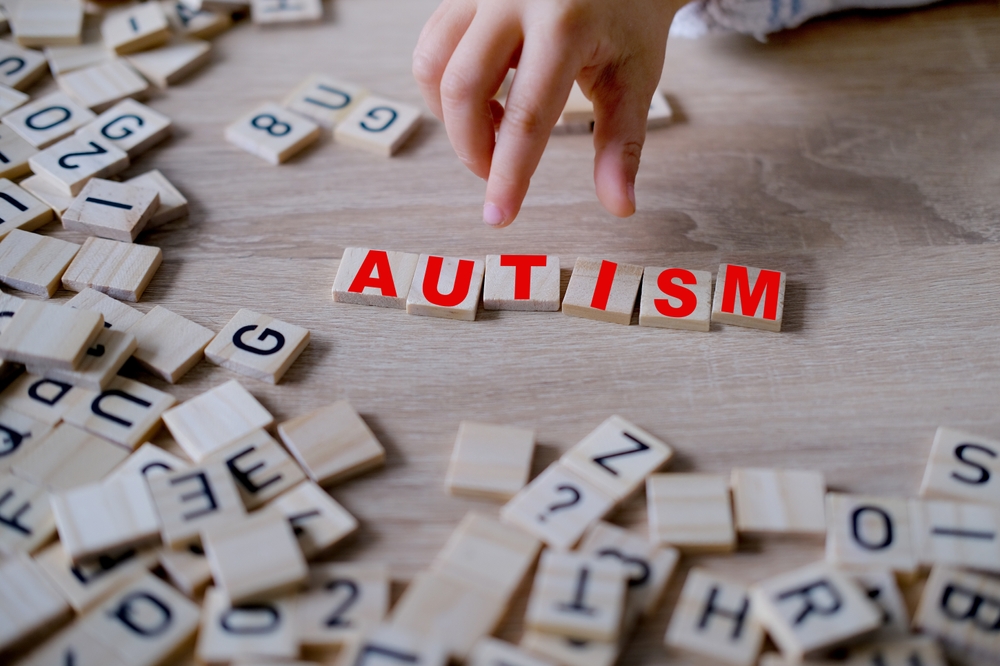Roughly 1% of the global population has autism, or autism spectrum disorder (ASD), and around 1 in every 100 children get a diagnosis. This disorder can look different in boys vs girls, and can show in many different ways, with individuals often experiencing comorbidities such as ADHD or anxiety. However, if your child has recently been diagnosed, you are probably asking yourself—how do I talk to my child about their autism diagnosis?
While you yourself might have a lot of questions, from whether ASD is a learning disability, what sensory overload is, or the difference between autism and Asperger, it’s crucial to find time between doing research and speaking to professionals, and having that all-important conversation with your child about it.
Why Does Talking About an Autism Diagnosis Matter?

Talking about your child’s autism diagnosis with them matters no matter their age for several reasons—it can help them understand themselves, boost self-confidence, and show them that you are there to support them. Having this conversation is imperative for both parties, and will help to build a strong relationship or trust and understanding, which will allow your child to openly come to you for help when they need it.
When Is the Right Time to Have the Conversation?
All children are different, and there is no ‘right’ time to tell them about their autism diagnosis—rather, you should tell them when they can begin to understand it. While this is typically around primary school age, it’s important that speaking and learning about autism should be normal, and that you do not frame it as a negative—because it isn’t.
For parents wondering, ‘how do I talk to my child about their autism diagnosis’, picking the right time might feel crucial, but this isn’t something that should be a painful topic to discuss. Talk about it at a young age, and help your child grow and understand their diagnosis from the get-go.
How Can You Explain Autism in a Child-Friendly Way?

The best way to explain autism to a child is to tell them that autism comes down to their brain working differently and emphasising that it is not an illness, and that there is nothing wrong with them. It’s important to remind your child that, like everyone else, they will have strengths and weaknesses, and you can tell them about some differences—but ensure that you keep your explanations age-appropriate.
You may want to mention some differences about sensory processing and sensitivities, for example, letting them know that they might hear or see things differently to lots of other people (like fluorescent lights), and that they might have strong reactions to such stimuli. Try to use examples of everyday things, situations, and behaviours to illustrate how autism impacts them.
Every step of the way, it is crucial to validate your child’s feelings and show them that you are there to help and support them. Please remember that it will take some time until both you and your child understand everything, and always let them know that you are there to help and to find strategies and solutions to make their lives a bit easier.
Should You Put Your Autistic Child in Therapy?
Some children with ASD could benefit from different kinds of therapy, but this will depend on what your child needs. For example, speech therapy might be useful to help with communication skills and understanding social cues, while occupational therapy is helpful for teaching children about daily activities to help them take care of themselves. Speak to a professional to determine if any therapies could be beneficial for your child.
Types of therapy that may benefit an autistic child include:
- Speech therapy
- Occupational therapy
- Applied Behaviour Analysis
- Physical therapy
Tips for Framing the Diagnosis Positively
To frame an autism diagnosis positively, you need to remember that nothing is wrong with your child, and they have been autistic from the moment they were born—so nothing has changed! You need to take it as an opportunity to make life easier to understand, and be optimistic about reminding your child that they are unique—like everyone else, and have strengths and weaknesses—just like everyone else, too.
Tips for framing an autism diagnosis positively include:
- Make it clear that there is nothing wrong with them, only that their brains work differently
- Explain that the diagnosis means that they can better understand themselves
- Let them know that the diagnosis will allow you to help them cope and find strategies to help them in everyday life
- Remind them that they have strengths and weaknesses like everyone else
Knowing that answer to ‘how do I talk to my child about their autism diagnosis’ is key in building a relationship of trust and understanding, and knowing how to parent a child with ASD can be difficult. However, once you have a better understanding of autism, and what it can entail, including anger, sensory overload, echolalia, and more, you can begin working out the specifics.
How Can You Support Your Child Emotionally After the Conversation?

You can support your child emotionally after speaking to them about their autism diagnosis by making sure that they know you are there to help them, talking openly about their diagnosis and what it means, listening to them and validating their concerns, and taking steps to accommodate their needs.
If you are worried about the question, ‘how do I talk to my child about their autism diagnosis’, all you need to remember is that showing your support and making an effort to be patient and understanding goes a long way. You also need to bear in mind that people with ASD are rarely the same as fictional characters with autism are depicted!
Ways to support your child emotionally after talking to them about their autism diagnosis include:
- Let them know that you are there to help them
- Listen to them and hear out their worries and concerns by validating them
- Be open and willing to hear them about feedback or what you can do to help them
- Try to help them understand their own needs through different kinds of communication or taking notes (depending on their age)
- Allow them to ask questions, and get in touch with a professional if you do not have the answers
- Take their needs into consideration moving forward and make small changes to help their daily lives
- Get in touch with a licensed therapist if needed
How The Brain Workshop Can Support Your Family

If your child has been diagnosed with autism, it’s important for parents to know that ASD is hereditary. This means that if your child has been diagnosed, there is a very good chance that you, your partner, or both of you are autistic as well, even if you are not aware of it. Similarly, if you look at the assessment and think ‘that’s normal, I do that!’, then it may be worth seeking out an assessment for yourself.
Need help navigating your child’s autism journey? Contact The Brain Workshop for supportive services to help families understand, connect, and thrive together. Or, find out more about signs of sensory overload, how ASD can impact sensory processing, and the link between autism and sleep issues.
Parents asking themselves, ‘how do I talk to my child about their autism diagnosis’ need to remember to keep their discussions age-appropriate and show their support every step of the way. As long as your child knows that you are in their corner, you will learn from one another.
Learn more about us at the Brain Workshop, meet our team, check out events, or read our FAQ.






